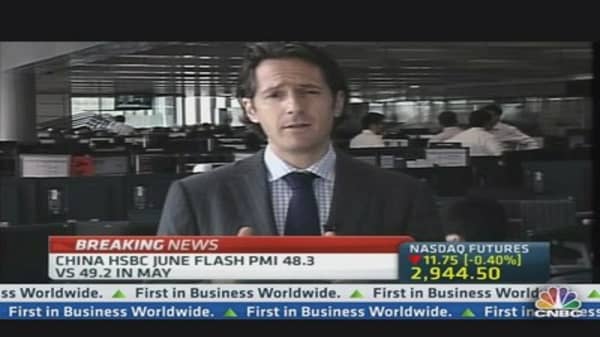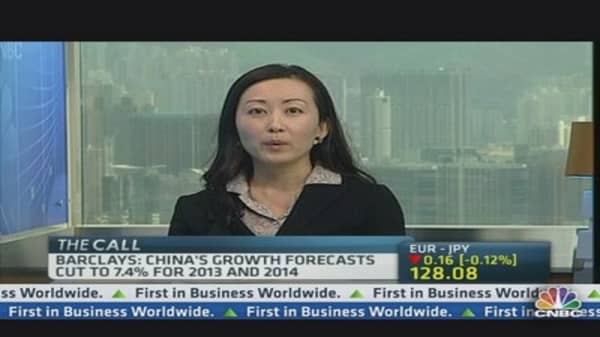Activity in China's vast factory sector decelerated further in June, a private survey of Chinese manufacturers showed on Thursday, casting a pall on markets and stoking further concerns over the health of the world's second largest economy.
The closely-watched flash estimate of the HSBC China Purchasing Manager's Index (PMI) fell to a nine-month low of 48.3, worse than the final reading of 49.2 in May when the index moved into contractionary territory for the first time in seven months.
A reading above 50 indicates expanding activity and one below 50 signals contraction.
(Read More: This Worries Us Most About China, Says World Bank)
"I think this is proof that actually there is a deceleration in the Chinese economy," said Frederic Neumann, co-head of Asian Economics Research at HSBC.
"Second quarter (growth) is going to come in below the first quarter and there's no end in sight – because we haven't seen a clear signal that policymakers are stepping up to support the economy."
Neumann was referring to a lack of action from authorities to ease the liquidity crunch in China's financial sector. The seven-day repo rate, which is regarded as a key indicator of market liquidity, soared to a record high of 10.2 percent on Thursday.






